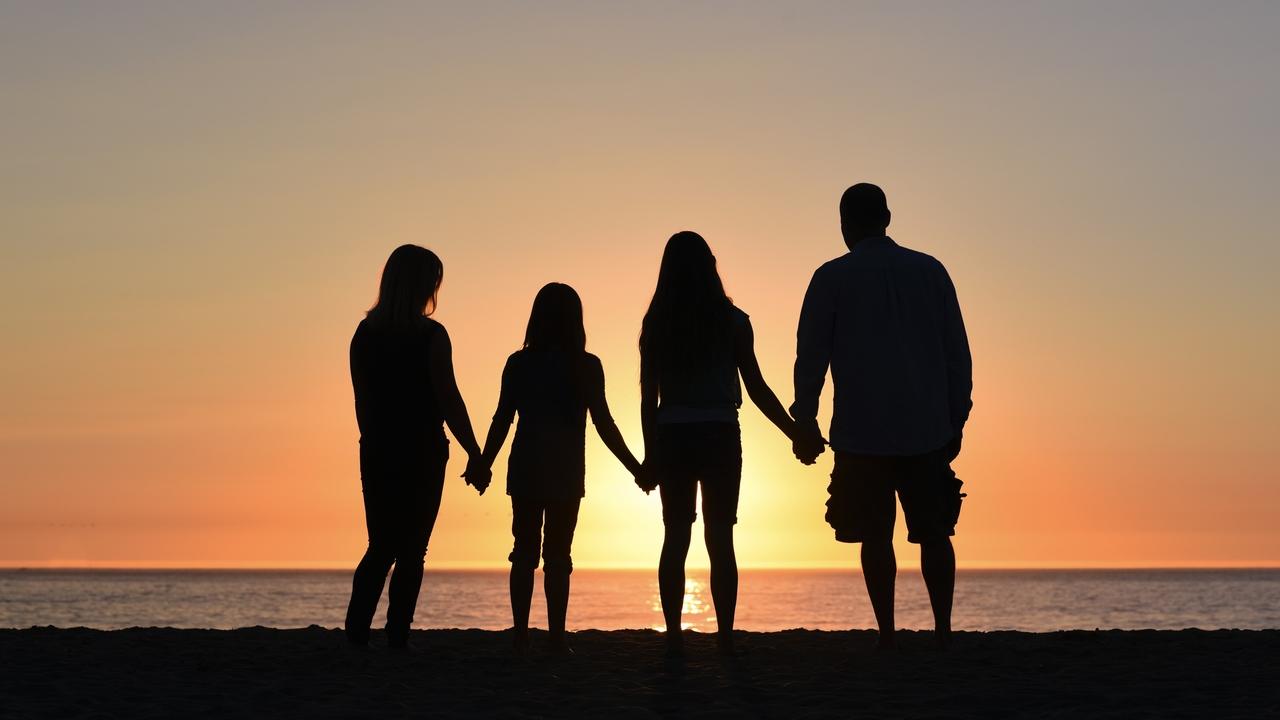by Maria De Bruyn, MA, LMHCA
When someone remarks, “You have a beautiful family,” what do they mean? Are they alluding to the physical characteristics of family members, denoting some physical trait that the family has in common? Are they talking about the strength of the family as evidenced by the family’s size, ability to face obstacles, and resourcefulness? Or is the family simply being noticed for its “je ne sais quoi,” the very spirit of the family that makes it what it is?
Appreciate Beauty Even in Broken Families
No matter how difficult the circumstances of a family, there is always some beauty that can shine through its family members. Even growing up in the most horrendous of situations, family members have a chance to show their nobility and their strength of spirit by refusing to be a part of the dysfunction, standing up for victims of abuse, and speaking out against wrongdoing. In the lives of the saints, there are many examples of saints who grew up in very dysfunctional homes with abusive, neglectful, or self-centered family members.
St. Germain is an example of a child that suffered in unimaginable ways. Her stepmother did not let her eat with her family or let her near her kids. She had to sleep apart, sometimes in a barn. Even when her father finally regretted letting his wife treat Germaine this way (most likely because the villagers knew her better for who she was than her own family did and put a little pressure on the family), St. Germain did not accept his offer to have her rejoin the family. One might say that she put up good boundaries for herself, knowing that she was unloved and unlikely to be able to trust her family again after such treatment and endure the same rejection twice.
Understand Beauty is Related to Order
Philosopher David Hume remarked that beauty is related to order. “Beauty is such an order and construction of parts, as either by the primary constitution of our nature, by custom, or by caprice, is fitted to give a pleasure and satisfaction to the soul,” he said. “This is the distinguishing character of beauty, and forms all the difference betwixt it and deformity, whose natural tendency is to produce uneasiness.”
Psychiatrist Murray Bowen created family systems theory to describe the natural order of families as an emotional unit with an order and specific patterns. To put it simply, every family member is meant to be attached to other family members in a certain way, depending on his or her role. In an ideal world, children are born into the arms of emotionally mature parents who love their children unconditionally and cultivate a life of virtue in their kids. In turn, children show love and respect for their parents by being their best and truest selves and trying their best to live lives of virtue.
Children are not their parents equal, nor are they meant to be neglected or abused. A loss of beauty and dignity in the family is a loss of order. Children cannot be expected to act like adults while the parents act like kids. Parents should not alienate their children through neglect or emotional abandonment. When family members embrace their proper roles, which can change over time with healthy development, others can truly say, “What a beautiful family you have!”
About Maria De Bruyn
Maria De Bruyn, MA, LMHCA is an associate counselor. She received her bachelor’s degree in Spanish from University of Dallas and a Masters degree in Counseling from Northwest University. Originally from Texas, Maria moved to the Pacific Northwest many years ago. Maria worked with severely mentally ill adults during her internship. As a behavioral health outreach provider, Maria was able to learn more about mental health needs in a rural setting. Maria started her own private practice, San Juan Counseling, to be able to offer counseling that integrated Catholic faith with psychological principles. Because Maria works on a somewhat remote island, her practice is mainly done through video or phone counseling. Contact Maria at San Juan Counseling.
